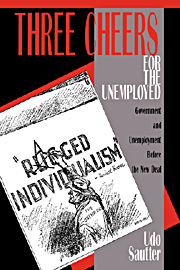Book contents
- Frontmatter
- Contents
- List of figures and tables
- Abbreviations used in the text or footnotes
- Acknowledgments
- Dedication
- 1 Introduction
- 2 Perceiving the problem: 1870s to the entry into World War I
- 3 Nascence and growth of the USES: World War I
- 4 Pondering the issues: Postwar to the mid-1920s
- 5 Accepting the task: 1928–1933
- 6 Epilogue
- Appendix
- Index
4 - Pondering the issues: Postwar to the mid-1920s
Published online by Cambridge University Press: 31 March 2010
- Frontmatter
- Contents
- List of figures and tables
- Abbreviations used in the text or footnotes
- Acknowledgments
- Dedication
- 1 Introduction
- 2 Perceiving the problem: 1870s to the entry into World War I
- 3 Nascence and growth of the USES: World War I
- 4 Pondering the issues: Postwar to the mid-1920s
- 5 Accepting the task: 1928–1933
- 6 Epilogue
- Appendix
- Index
Summary
The decade following the end of hostilities did not witness the fulfillment of any high-flown reform expectations. This was not necessarily a result of the war experience, whose impact was mixed. By sharply reducing joblessness, the war diminished public support for intensified governmental action. But its regulatory and centralizing tendencies also increased public acceptance of governmental activity in general, and the very buildup of the USES seemed to bear promises for future reform. As it turned out, the incentives to continue or even increase governmental involvement in the social sphere were weaker than the countervailing forces. Demobilization and the depression of 1921 each briefly recalled the unemployment concerns of the prewar period, but they did not last long enough effectively to suppress the anti-interventionist sentiments that the war had engendered. The one outstanding event of these years, the President's Conference on Unemployment of fall 1921, in its caution epitomized this attitude.
Postwar and prosperity
Complacent normalcy
The lack of impressive signs of advancement was not evidence of the absence of any reform efforts altogether. The ranks of the reform proponents now included more professionals and more progressive businessmen. Convinced of the correctness of the scientific approach to social issues, they were eager to ensure that changes in the institutional frame of society kept up with technological development.
- Type
- Chapter
- Information
- Three Cheers for the UnemployedGovernment and Unemployment before the New Deal, pp. 127 - 218Publisher: Cambridge University PressPrint publication year: 1992

